 “We’re really afraid of the National Civil Police and the Public Ministry, because of their direct actions towards us, the things we have seen.
“We’re really afraid of the National Civil Police and the Public Ministry, because of their direct actions towards us, the things we have seen.
«There have been human rights violations by uniformed persons and persons who call themselves security staff. People who hold power in our country” she said.
Kenia Mayli, Jessica Andreina and Sabrina Cajas were murdered last year between late October and early November. These hate crimes, a result of transphobia -an irrational aversion to transgender people, transsexuals and transvestites- present in Guatemala, led members of Redlactrans and local organisation Reinas de la Noche (Queens of the Night) to mobilise.
They publicised the hate crimes in the media and participated in a national demonstration to stop violence against women. However, it didn’t stop anything.
“As a result of those actions there were more attacks, more threats. I was attacked and someone tried to kill me”, says Johana. This happened in November, when she was walking along the street and noticed four men following her.
“They came very close and started to say ‘it’s her, it’s her’. When I looked at them I realised that one was getting his gun ready to shoot me… I ran off and went into a shop. One of the men complained to the one carrying the gun: ‘You should have shot her, you had her close, why didn’t you do it?’” Johana remembers with distress.
But her nightmare didn’t end there. Catherine Barrios, her roommate who is 20 years old, has been missing since mid-February.
“We don’t know her whereabouts, where she is, or how she is. We don’t know whether she was kidnapped or murdered. This makes us feel sad and very vulnerable” says Johana.
Acts of violence and attacks are repeated week after week, day after day. A group of men similar in appearance and build to those who threatened Johana attacked a group of transgender women a week later.
They were standing in a group on a main road when the group of men approached them and started shooting. They all managed to escape, but one was wounded in the arm. Something similar happened to Red Cross transgender people, who were threatened recurrently by men driving a red car, their faces covered by balaclavas.
Who to turn to?
When hate and violence come from the police force and a public ministry it is difficult to protest for justice. So transgender organisations go to the Office of Human Rights to denounce and publicise these hate crimes.
Meanwhile, they are also carrying forward a procedure to enable them to go before the Inter-American Court of Human Rights, to apply pressure at international level. “In our country all the records have been beaten. Since the start of the year 13 people have been murdered in different regions of the country, there’s one person missing, they’ve tried to murder me. We are in a situation of risk and highly vulnerable” says Johana.
They are united, but they are very much alone. They do not have support from their families or the media.
“Many of our friends are buried as NN (No-Name) because their families won’t recognise them. So we, their peers, have to do their families’ job, recognising the bodies, burying them” says Johana.
“For the media we’re tabloid news, because they don’t report on the human side, they just make fun of us, condemn us, and they give more ammunition to the people who commit these ugly acts” she said.
The Guatemalan transgender community not only suffers hate crimes but it also has to tackle a health system that discriminates against them, with difficulties accessing health services and notable social rejection.
“The reality is that we’ve had to overcome so many things, such as family rejection, social rejection, not being able to enter certain places because we look different. All that gradually makes us stronger than other people.”
Johana claims that in her country the average life expectancy for a transgender person is 25 years: “If we make it to 30, it’s because we got lucky”.
This is the situation in Guatemala. It cannot and must not remain like this. Johana says she lives in fear. She goes into and leaves her house in fear. But through the tears she says she will not stop.
“My responsibility as an activist, as a champion of human rights in the transgender community, is to carry on. If I wasn’t part of Redlactrans, if I was alone, maybe I’d feel like I was in an abyss” she concludes.
But she is not alone. They are not alone. And we cannot allow them to be alone.
“In Guatemala our community is constantly persecuted. The Law and the State persecute our transgender friends”, explains Marcela Romero, Regional Secretary of Redlactrans.
She adds that this situation is mirrored throughout the region: “In Latin America, we, transgender people, don’t know what democracy is, there is no law that protects us, our rights are violated every day”.
Against this grave backdrop none of the efforts to reduce factors of vulnerability for gay men, transgender people and sex workers can have any success.
These despicable events deserve to be met with the coordinated efforts of governments, civil society and international agencies, because they have to be brought to light and it is fundamental that future incidents be prevented.
Meanwhile, if things do not change, these citizens will be an easy target for institutional violence that abuses and kills with impunity, while governments turn a blind eye. When sexual orientation, gender identity or sex work is the cause of death, this is a shared responsibility for all of us, which calls for less talk and quick action.
By Alejandra Ruffo
Buenos Aires, Argentina






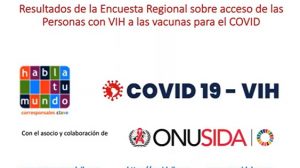
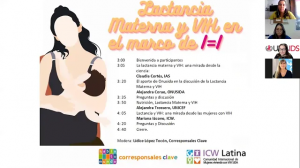
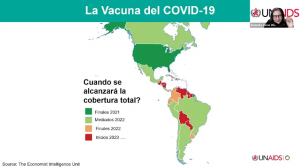
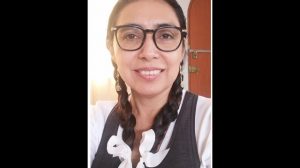
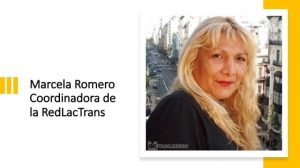
Añadir comentario